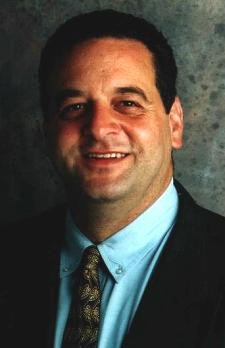School board leashes drug-dog plan - San Francisco Chronicle - By Peter Fimrite March 22, 2006
MARIN CITY
School board leashes drug-dog plan
Plan to send them onto black campuses is labeled racist
Peter Fimrite, Chronicle Staff Writer
Wednesday, March 22, 2006
Community leaders expressed hope Tuesday that racial harmony can be restored in Sausalito after a program to bring drug-sniffing dogs into a mostly African American middle school was suspended amid a public outcry.
Outraged students, parents and civil rights activists pilloried the Sausalito Marin City School District board Monday for approving what they said was a racially insensitive program without community involvement.
The district's five trustees agreed in November to a contract with Interquest Detection Canines to use the dogs in monthly sweeps of the Martin Luther King Jr. Academy middle school, a small school attended by 40 black children, mostly from Marin City.
After 90 minutes of criticism, the trustees suspended the program for two months so they could discuss the issue with parents, student groups and community organizations. The board plans to come back May 18 with recommendations on whether to continue or end the program.
"I think it is great that they've gone in this direction and are finally listening to people's concerns," said Bryce Skolfield of the Youth Leadership Institute, a nonprofit that works to bring youths and adults together to make policy decisions. "A lot of work needs to be done now to make sure that whatever decision is made is rooted in community support and we intend to be very involved."
The issue is an example of the volatile nature of education in Sausalito, where almost 90 percent of the district's 300 or so elementary and middle school students are minorities -- and about 80 percent of them are African Americans from Marin City, an unincorporated area that includes public housing complexes.
For years, most white parents in Sausalito have sent their children to private schools elsewhere in Marin County. As a result, almost everything about public education in Sausalito is tinged with real or perceived racial issues.
The school trustees, two of whom are black, said the drug-sniffing dog issue was blown out of proportion mostly by uninformed people.
Interquest, they said, is a program used by numerous schools around Northern California, including Marin Catholic High School and the Novato Unified School District, to search public areas in the schools. The program policy states that no students, lockers or backpacks can be sniffed or searched without reasonable suspicion.
Sausalito school trustees said they agreed to the contract in part to combat the perception that there is widespread drug use in the community. Last November, shortly after the board approved the contract, some 30 people were arrested in an unrelated drug sweep near the school.
"My greatest fear is that there will be a drug bust and it will be on our campus and people will come up to us and say, 'Well, how did that get by you?' " said Trustee Thomas Clark.
But Skolfield, who called Marin City a museum of racism, said the issue of race cannot be ignored when dogs are brought in to control a problem that there is no evidence exists.
The district has been integrated since the 1960s, when busing started between Sausalito and Marin City.
The racial mix, however, began to change rapidly in 1990 when military housing at Forts Baker, Barry and Cronkite started closing, reducing white enrollment in the district's schools.
Enrollment subsequently dropped, leaving predominantly African American students from Marin City. By 2000, the district's students had the lowest test scores in Marin County, a fact that widened an already gaping racial, economic and cultural divide.
Politicians and community leaders have been trying for years to improve the district's schools, but high teacher turnover, a successful school board recall and a widely publicized sex scandal involving a trustee only made things worse.
In recent years, Clark said, there have been significant improvements in scores at the district's three schools -- Bayside Elementary, Martin Luther King Jr. Academy middle school and the new Willow Creek Academy charter school, although none has broken into the ranks of schools the state rates as excellent. The latest Academic Performance Index scores released Tuesday by the state show Bayside with a 723 score, Willow Creek with 709 and Martin Luther King with 629. A score of 800 out of 1,000 is considered excellent.
In light of those academic improvements, the decision to bring in drug-sniffing dogs was all the more baffling to people.
Board members, however, said they have been trying for six years to get the community involved in the schools, but nobody showed up or previously expressed any interest in the dog issue despite written notification and two public meetings before it was approved.
It became an issue, they said, only after Skolfield and other out-of-town activists -- including a group of students from Branson, an exclusive private school in Ross -- recently drummed up opposition then showed up en masse at the meeting on Monday night.
E-mail Peter Fimrite at pfimrite@sfchronicle.com


<< Home